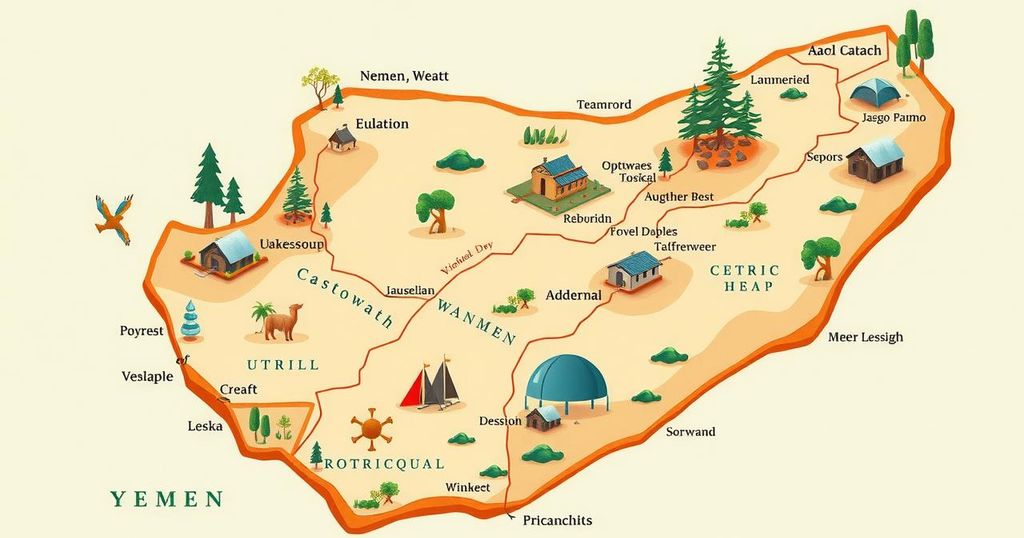The Yemeni Civil War, ongoing since 2014, began with Houthi forces capturing Sanaa amidst regional unrest. Saudi Arabia intervened militarily to restore the Hadi government amid humanitarian crises. The conflict has escalated as the Houthis targeted Israel and maritime vessels, demonstrating their regional ambitions while Yemen’s internal tensions continue. Negotiations have been complicated by external conflicts and shifts in power dynamics.
The Yemeni Civil War, ongoing since 2014, initiated with Houthi rebel forces seizing the capital, Sanaa, amidst a backdrop of instability following the Arab Spring. The conflict escalated dramatically due to the involvement of Saudi Arabia and the United Arab Emirates, leading to widespread starvation and a severe cholera outbreak. By 2020, Houthi rebels appeared dominant, but their focus shifted in 2023 to engaging Israel and attacking vessels in the Red Sea amid escalating tensions related to the Israel-Hamas conflict.
The roots of Yemen’s turmoil can be traced back to its unification under Ali Abdullah Saleh, who struggled to manage external and internal divisions. Years of authoritarian rule culminated in widespread discontent following the Arab Spring protests that erupted in early 2011, challenging Saleh’s regime. While initial protests were met with violence, opposition groups, including Houthi rebels, emerged as pivotal forces against the government.
As protests surged, security forces withdrew from several areas, allowing militant groups to establish control. Despite attempts at negotiation through the Gulf Cooperation Council, Saleh’s refusal to relinquish power led to further violence and instability. Following a failed assassination attempt in June 2011, Saleh eventually ceded power to his deputy, Abd Rabbuh Mansur Hadi, who faced his challenges, including an economy in collapse and increasing factional disputes.
Hadi’s government struggled to maintain stability, which allowed the Houthis to capture Sanaa in September 2014, leading to Hadi’s resignation amidst intensified fighting. In an effort to counter Houthi advances, Saudi Arabia intervened militarily in 2015, establishing a coalition that aimed to restore Hadi’s government but faced significant challenges in ousting the Houthis from northern territories.
Humanitarian conditions in Yemen dwindled as coalition bombings killed civilians and destroyed infrastructure, provoking international concern. Despite multiple cease-fires and negotiations, including attempts to consolidate control over Hodeidah, the conflict simmered into a stagnation of fighting and humanitarian despair.
As 2020 unfolded, the Houthis intensified their military maneuvers while the coalition faced economic pressures. A temporary ceasefire was declared, allowing for political realignment as Hadi resigned in favor of a council. Tensions flared again in 2023 as the Houthis targeted Israel in retaliation for broader regional aggressions initiated by Hamas, amplifying their influence and further complicating the humanitarian crisis in Yemen.
The Yemeni Civil War, rife with humanitarian crises and territorial disputes, remains unresolved with the Houthi rebels asserting influence both regionally and domestically. While the conflict has subjected the Yemeni population to dire circumstances, the geopolitical implications are profound, particularly with the Houthi’s engagement in international affairs. Given the increasing complexity of alliances and hostilities, the pursuit of a peaceful resolution appears more challenging than ever. The shifting dynamics necessitate continuous international attention and intervention to alleviate the suffering of the Yemeni people.
Original Source: www.britannica.com






